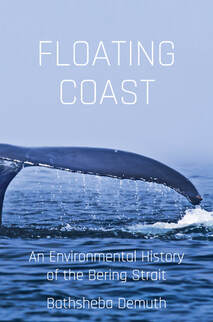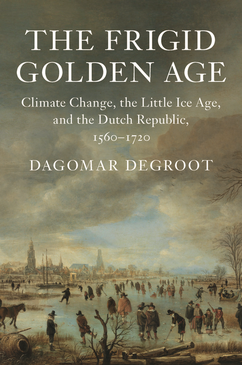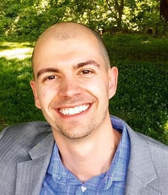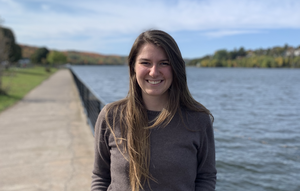|
In the 21st episode of Climate History, co-host Emma Moesswilde interviews Debjani Bhattacharyya, Associate Professor of History at Drexel University. Professor Bhattacharyya is among the most innovative scholars of past climate change, and the histories she uncovers have clear relevance for the future of the Indian Ocean World.
Moesswilde and Bhattacharyya discuss the history of human responses to climate change at sea; the role of environmental disasters in shape urban trajectories; the role of insurance markets in creating weather knowledge; and how transdisciplinary perspectives on the past can inform our understanding of a hotter future. To listen to this episode, click here to subscribe to our podcast on iTunes. If you don't have iTunes, you can still listen by following us on SoundCloud or Spotify.
268 Comments
In the 17th episode of Climate History, co-hosts Dagomar Degroot and Emma Moesswilde interview PhD candidate Emily Webster of the Department of History at the University of Chicago.
Webster's trailblazing scholarship combines environmental history, the history of science, and medical history to transform understandings of disease in the British Empire. Among other topics, Webster discusses what history can reveal about the unequal impacts of environmental change on marginalized communities, and how it can shed light on connections between apparently isolated environmental crises. She also describes how history can inform public discourse on COVID-19; and identifies the impact of our present pandemic on higher education - particularly graduate students. To listen to this episode, click here to subscribe to our podcast on iTunes. If you don't have iTunes, you can still listen by clicking here.  In the tenth episode of Climate History, our podcast, Emma Moesswilde and Dagomar Degroot interview Bathsheba Demuth, assistant professor of environmental history at Brown University. Professor Demuth specializes in the lands and seas of the Russian and North American Arctic. Her interests in northern environments and cultures began when she was 18 and moved to the village of Old Crow in the Yukon, where she spent several years training sled dogs. In the years since, she has visited and lived in Arctic communities across Eurasia and North America. She has a BA and MA from Brown University, and an MA and PhD from the University of California, Berkeley. Her writing has appeared in publications from the American Historical Review to the New Yorker. Her first book, Floating Coast: An Environmental History of the Bering Strait is now out with Norton, and has received rave reviews in both popular and academic publications. Professor Demuth is a returning guest. In our first interview, she introduced the major themes of what was then her doctoral dissertation, and is now Floating Coast. In this episode, she describes how she wrote the book, and what we can learn from it. She details her experiences in the Arctic, her deep engagement with the community of Old Crow, her thinking about non-human actors in historical stories, her success in writing for the general public, and her views on what the past can reveal about the future of the rapidly-warming Arctic. To listen to this episode, click here to subscribe to our podcast on iTunes. If you don't have iTunes, you can still listen by clicking here. A Conversation with Dr. Dagomar Degroot: Societal Resilience and Adaptation in the Little Ice Age6/15/2018  In the eighth episode of the Climate History Podcast, PhD candidate Robynne Mellor (Georgetown University) interviews Dr. Dagomar Degroot, director of HistoricalClimatology.com, about his new book: The Frigid Golden Age: Climate Change, the Little Ice Age, and the Dutch Republic, 1560-1720. Dr. Degroot is an assistant professor of environmental history at Georgetown University, where his research focuses on societal resilience and adaptation to abrupt climate change; conflict and climatic trends, particularly in the pre-industrial Arctic; and the environmental history of outer space. His next book, Civilization and the Cosmos, under contract with Harvard University Press and Viking UK (a division of Penguin Random House), will trace how dramatic environmental changes across the solar system influenced human history. At Georgetown, he teaches courses on a range of interdisciplinary topics, from the history of Mars in science and culture to the present-day Anthropocene. He is also the co-director of the Climate History Network, the director of the Climate Tipping Points Project, and the usual host of the Climate History Podcast.  In this episode, Mellor and Degroot discuss how the Dutch thrived in the Little Ice Age; the limitations of histories that focus exclusively on disaster stories; the challenges of interdisciplinary work; the keys to getting a job in environmental history; and the culture shock of moving from Canadian to American academia. To listen to this episode, click here to subscribe to our podcast on iTunes. If you don't have iTunes, you can still listen by clicking here. |
Archives
December 2021
Categories
All
|



 RSS Feed
RSS Feed